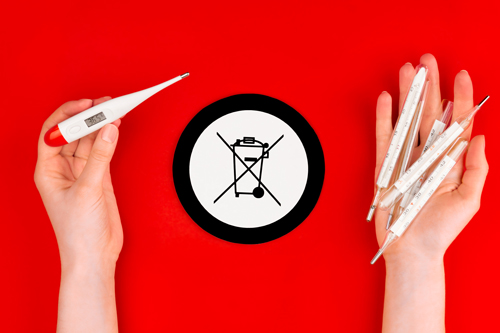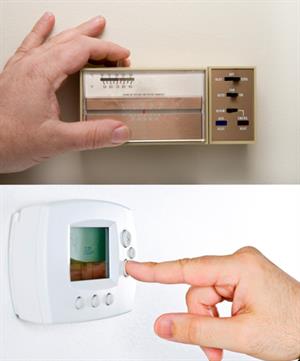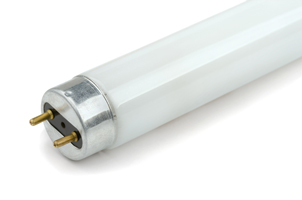 Household Mercury Awareness
Household Mercury Awareness
Mercury is a heavy, shiny silvery metal that is liquid at room temperature. It combines easily with other metals, and expands and contracts evenly with temperature changes. Because of these properties, mercury is used in a variety of household products. When liquid mercury is spilled, it can emit very toxic vapors. Families have been poisoned from home mercury spills that were not properly cleaned up.
Did you know that less than a third of mercury in the environment is naturally occurring?
The majority is released through pollution that can be prevented. Mercury enters the atmosphere and waterways from coal-fired power plants, industrial sources, and improper disposal of household products. When mercury enters waterways, it can contaminate fish tissue and other animals, relying on those fish for survival.
How Can I Help Prevent Mercury Pollution?
Minimizing mercury releases from all sources is essential. Mercury contamination is a global problem. Here is how you can make an impact on a local basis:
- Learn which household products contain mercury
- Use alternative non-mercury containing products whenever available.
- Recycle and/or dispose of mercury-containing products properly.
- Clean-up mercury-containing products responsibly to protect your family and your environment.
Guidelines for a Mercury Spill Clean-up
If you are faced with cleaning up a mercury spill, use the following method:
- If liquid mercury is released or spilled onto a smooth surface, use two pieces of paper to scoop all of the tiny beads into a sealable plastic container.
- If necessary, use an eyedropper to capture the beads.
- Wipe the area with a damp sponge.
- Put all cleanup material (e.g., paper, eyedropper, sponge) into marked plastic containers.
- Dispose of mercury waste properly! The plastic container(s) can be disposed of at a Weld County Household Hazardous Waste Disposal Site. There are multiple facilities available. Call Weld County Environmental Health Services Department at 970-340-6415 for additional assistance.
- For large spills, a contractor may be needed. Contact the Weld County Environmental Health Services Department for guidance.
NEVER:
- Use a vacuum cleaner or shop vac for clean-up. It can atomize liquid mercury and further the spread.
- Use a broom or paintbrush for mercury clean-up.
- Break open items containing mercury.
- Pour mercury down the drain.
- Burn mercury.
- Put mercury in the trash.
Alternatives for Mercury-Containing Products
 Replace the following:
Replace the following:
- Mercury thermostats with an electric version.
- Mercury-containing switches with mechanical or electric switches.
- Old batteries with a mercury-free variety.
- Mercury-containing thermometers with alcohol (red-bulb) or digital thermometers.
Please recycle these materials at a Weld County Household Hazardous Waste Disposal Site:
- All mercury-containing:
- thermostats
- batteries
- switches
- thermostats
Mercury Search
To reduce the chances of mercury exposure, dispose of any mercury-containing items correctly at a Weld County Household Hazardous Waste Site. Check for these items in your home:
- Thermometers – silver-colored liquid inside
- Thermostats – non-electric
 Fluorescent and other mercury vapor lighting
Fluorescent and other mercury vapor lighting- Automotive headlamps – blue tint when lit
- Pilot light sensors – in some gas appliances (stoves, ovens, clothes dryers, water heaters, furnaces, space heaters)
- Gauges – barometers, manometers, blood pressure and vacuum gauges with silver-colored liquid
- Switches & relays – in some chest freezers, pre-1972 washing machines, sump and bilge pumps, electric space heaters, silent light switches, vehicles and farm equipment
- Clothes irons – automatic or tilt shut-off variety
- Children’s chemistry sets – silver-colored liquid sometimes found in the set
- Vintage toys – toy drawing screens and mercury maze games
- Mercury-containing jewelry
- Batteries – mercuric oxide and some alkaline batteries
- Paint – latex manufactured pre-1990 and some oil-based paints; check the label